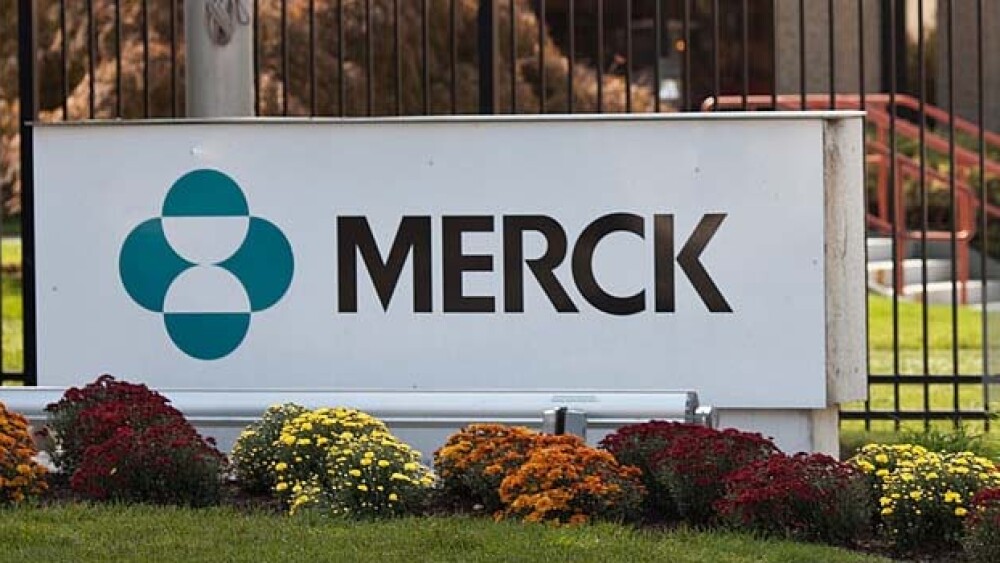Merck released its third-quarter financial results today, and along with it a hint--just a hint--that there might be some M&A deals in the future.
Merck released its third-quarter financial results today, and along with it a hint—just a hint—that there might be some M&A deals in the future.
In an opening statement, company chairman and chief executive officer Kenneth Frazier said, “Our performance in the third quarter demonstrates the strength of our underlying business, with growth from key product launches, good global demand for vaccines, as well as strength from our Animal Health Business. We will continue augmenting our pipeline through value-creating business development like our oncology collaboration with AstraZeneca to address unmet medical need and drive future growth.”
John Carroll, with Endpoints News, at least, is interpreting that to mean Merck is going to increase its deal-making. “That collaboration he referred to was a $2.35 billion upfront pact to partner with AstraZeneca on Lynparza and its experimental MEK inhibitor selumetinib,” he writes. “Tied up with a $6.15 billion bow, Merck struck one of the biggest deals in the industry in the same quarter it bought out the small German biotech Rigontech for $150 million down and $453 million in milestones—one in an irregular series of small deals used to augment the Keytruda franchise.”
In the third quarter, Merck announced worldwide sales were $10.3 billion, which is a decrease of 2 percent compared to the same quarter in 2016. The company cited a 1-percent positive impact from foreign exchange. Sales were cut by about $240 million because of a borrowing from the U.S. Centers for Disease Control and Prevention Pediatric Vaccine Stockpile of GARDASIL 9 (Human Papillomavirus 9-valent Vaccine, Recombinant), caused, in part, by a temporary production shutdown caused by this year’s cyber-attack. Other sales, for about $135 million, were also affected by the cyber-attack.
Earnings per share (EPS) were also down about $0.02 for the quarter, which the company says, “reflects a $2.35 billion aggregate charge related to the formation of a strategic oncology collaboration with AstraZeneca.”
Third-quarter pharmaceutical sales dropped 3 percent to $9.2 billion, related to loss of market exclusivity for several products, as well as lower sales of Januvia and Janumet for type 2 diabetes. They were partially offset by growth of Keytruda sales.
The company also updated its pipeline, which not surprisingly focused a lot on Keytruda. Keytruda was approved for patients with recurrent locally advanced or metastatic gastric or gastroesophageal junction adenocarcinoma whose tumors express PD-L1 and who have already received two or more lines of chemotherapy, and was approved in Europe for locally advanced or metastatic urothelial carcinoma. It is also being evaluated as a monotherapy and combo therapy in 12 cancers. There were also updates on Lynparza.
Carroll noted, “For a player like Merck to get back to the deal table with billions in mind for new pacts would likely spell a major difference for the industry. Of the big players, Sanofi remains unsatisfied and in need of significant new deals. And the string of new CEOs like Emma Walmsley at GSK and Dave Ricks at Eli Lilly are also getting more aggressive in competing for deals. Frazier has now planted his standard in biopharma dirt, with the money and inclination to make another splash.”





